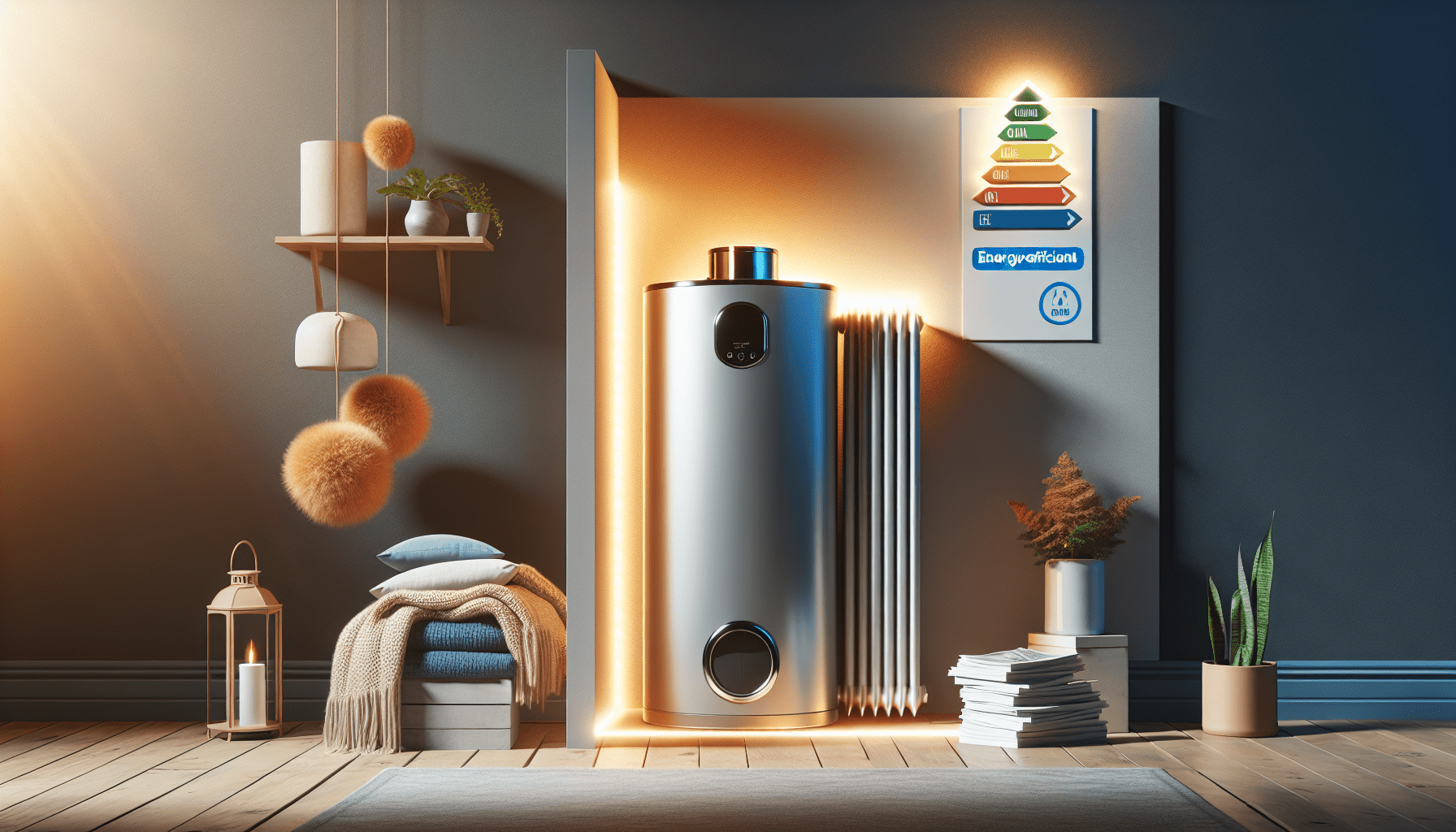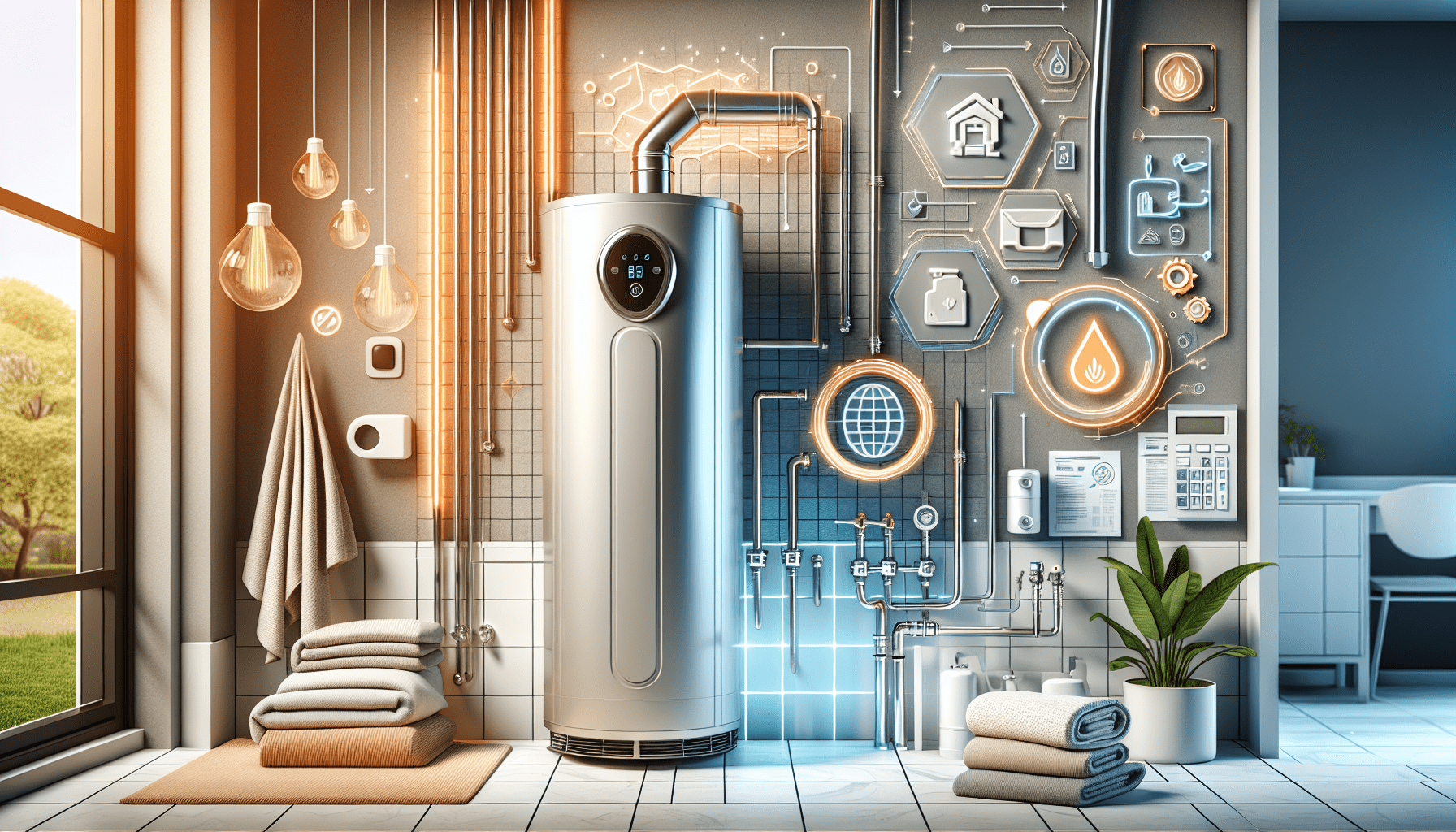Have you ever considered how much you could save on your energy bills with the right water heater? If you’re like most people, your water heater is just a part of the background hum of your home, but it might be time to shine a light on this energy-hungry appliance. Let’s talk about heat pump water heaters and how much these nifty machines can actually save you.

What is a Heat Pump Water Heater?
A heat pump water heater (HPWH) may sound a bit intimidating with all its mechanical jargon, but in simple terms, it’s a device that uses electricity to move heat from one place to another instead of generating heat directly. In essence, it extracts warmth from the air (or the ground) and transfers it to the water in your tank.
How Does It Work?
Imagine living in a world where your water heater doesn’t just turn on and off like a, well, water heater. Instead, it’s like your favorite gadget that delivers warm water while sipping on energy. The system consists of three main components: the evaporator, compressor, and condenser. It absorbs heat from the environment and concentrates it—think of it like an inflatable pool that just keeps getting bigger as you keep blowing air into it.
- Evaporator: Absorbs heat from the air and converts the refrigerant inside into a gas.
- Compressor: The gas is compressed, raising its temperature and pressure.
- Condenser: The hot gas passes through a coil, heating the water.
By efficiently using existing heat, HPWHs provide an eco-friendlier, cost-effective solution for heating water. Put simply, they’re the superheroes of the water heater world.
Understanding Energy Savings
When considering a switch to a heat pump water heater, it’s good to get acquainted with the potential energy savings. The Department of Energy estimates that you can reduce your water heating costs by 50% when you swap out a traditional electric water heater for a heat pump model. Now, let’s break this down.
Comparing Traditional Water Heaters and Heat Pump Water Heaters
To give you a clearer picture of what you might save, let’s look at a simple comparison.
| Feature | Traditional Electric Water Heater | Heat Pump Water Heater |
|---|---|---|
| Energy Use (kWh/year) | 4000 | 2000 |
| Annual Operating Cost (at $0.13/kWh) | $520 | $260 |
| Average Lifetime (Years) | 10 | 15-20 |
| Maintenance Costs per Year | $100 | $50 |
The table above shows how a heat pump water heater could potentially cut both your energy usage and costs significantly compared to a traditional electric model. Wouldn’t it feel good to see your energy bill decrease?
Breaking Down the Savings
To understand how you can save money, let’s go through some potential annual savings scenarios.
-
Example 1: A Single-Family Home
- Assume your current electric water heater consumes about 4,000 kWh annually.
- A heat pump water heater could reduce that to about 2,000 kWh, saving you around $260 per year.
-
Example 2: A Household with Teenagers
- If you’re running a busy household, you might find that you’re using even more water and energy.
- Say your energy consumption increases to 6,000 kWh; switching to a heat pump could save you about $520 a year.
-
Example 3: Eco-Friendly Households
- If your aim is primarily to reduce your carbon footprint, consider the potential environmental impact. By using a heat pump, reducing energy use means fewer emissions.
In these scenarios, your savings can vary based on several factors, including water heater efficiency, the size of your household, and your current energy expenses.

Upfront Costs vs. Long-Term Savings
Now, let’s address the elephant in the room. The initial cost of a heat pump water heater can be higher than traditional options. Often, people see that price tag and think twice. But consider this: the long-term savings may outweigh those initial costs.
Initial Investment
The average price for a heat pump water heater can range from $1,000 to $3,000, depending on the model and complexity of the installation. In comparison, traditional electric water heaters typically run between $400 to $1,500.
Long-Term Payback
While yes, the upfront cost is higher, the life span and energy savings can make a significant difference. If you take the annual savings of around $260 and multiply that over a period of 10 years, you’re looking at savings of $2,600. Factor in the lower maintenance costs, and you start to see a clear edge in favor of heat pump water heaters as a smart investment.
Potential Rebates and Incentives
Don’t forget to check for any local rebates or tax incentives when considering your new water heater. Many regions offer incentives for energy-efficient appliances, which could lower your overall costs. Getting some cash back takes a little sting out of that initial price tag!
Are There Any Downsides?
Every superhero has a flaw, and while heat pump water heaters are fantastic in many ways, they’re not without their quirks. They work optimally in environments around 40°F to 90°F. If you live in colder climates, the heater may become less efficient or require a backup system.
Installation Considerations
Heat pump water heaters require adequate space and airflow to function properly. You’ll need a suitable location—ideally a place where ambient temperatures are favorable. If your basement is cooler than Antarctica, it might not be the best choice.
Noise Levels
Noise is another factor you should consider. They operate using a compressor, and while they’re quieter than a dishwasher, they can still hum a bit. If the heater is placed near living spaces, you might want to consider that background noise.
How to Choose the Right Model
Now that you’re on board with heat pump water heaters, how do you choose the right one? Here are several features to consider:
Size
Getting the right capacity is crucial. A standard residential heat pump water heater ranges from 50 to 80 gallons. Choosing a size adequate for your household will ensure you always have access to hot water.
Energy Efficiency Rating (EF)
Look for the Energy Factor (EF) rating. The higher the EF, the more energy-efficient the unit is. Generally, a rating of 2.0 or higher is ideal for heat pump water heaters.
Warranty
Be sure to check the warranty as well. Typically, a good heat pump water heater will offer at least a 6-year warranty. It’s always best to go with brands known for durability and reliability.
Conclusion: Make the Switch Today
Switching to a heat pump water heater is more than just a cost-saving measure; it’s an environmentally friendly choice that helps reduce your carbon footprint while also keeping your wallet happy. You might still be contemplating, “Is it the right option for me?” The data suggests that yes, it probably is!
Whether you’re motivated by long-term savings, environmental concerns, or the simple comfort of having a reliable hot water source, it’s a choice worth considering. Take the time to weigh both the benefits and possible downsides, and don’t forget to calculate both the upfront costs and the eventual returns. When you take all these elements into consideration, the answer becomes clearer.
Wouldn’t it be lovely to trade in those rising utility bills for a stable savings account instead? Making a savvy choice today can lead to a brighter, more sustainable future tomorrow.

